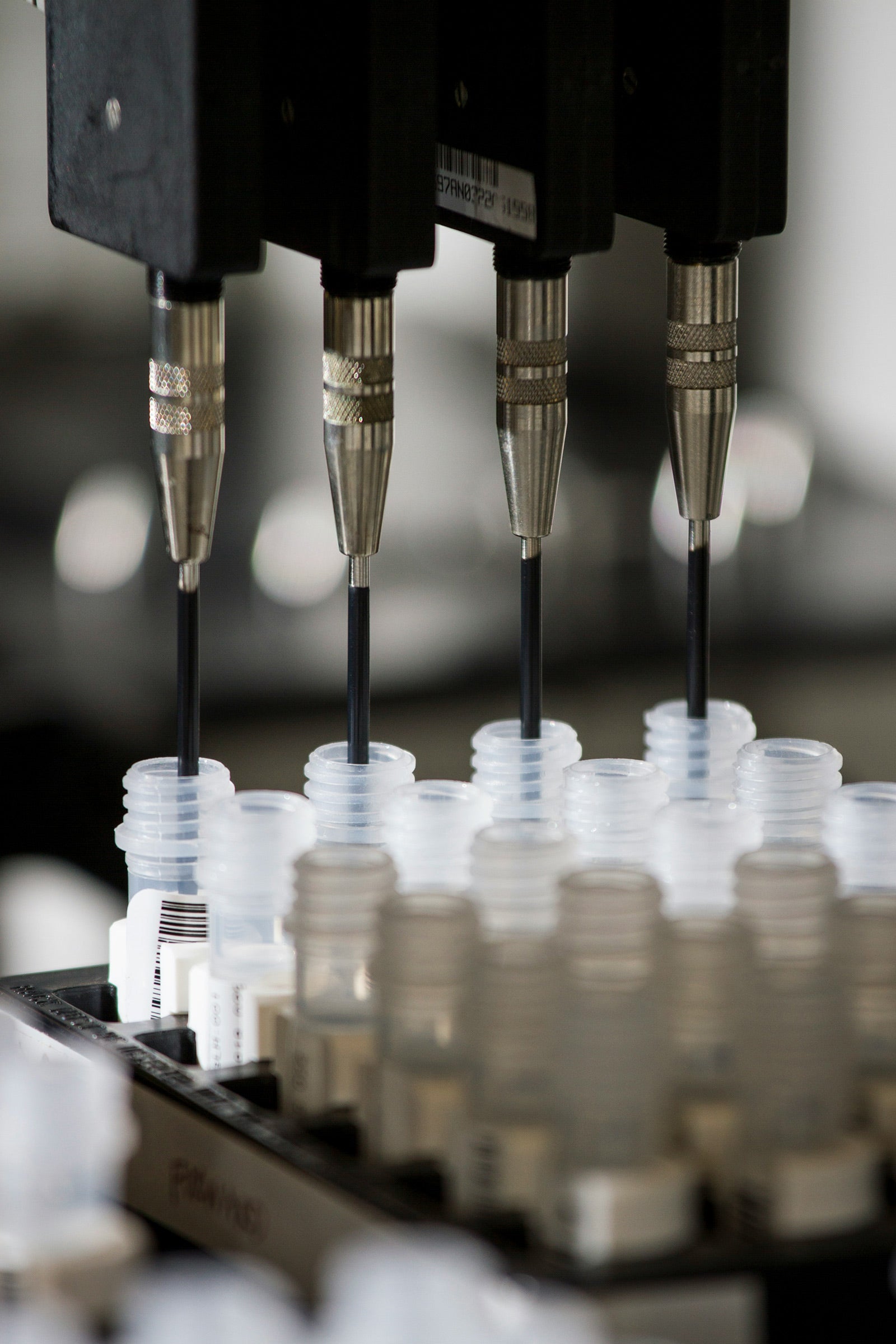When you take a digestive enzyme supplement, you want to know that your body is actually using those enzymes effectively. This is where the concept of bioavailability becomes crucial. Understanding how enzymes are absorbed and utilized can help you make better choices about supplementation and get the most benefit from your investment in digestive health.
What Is Enzyme Bioavailability?
Bioavailability refers to the degree and rate at which a substance is absorbed into your bloodstream and becomes available for use by your body. For digestive enzymes, bioavailability determines how much of the enzyme activity you're getting from your supplement actually reaches the areas where it's needed most.
Unlike many nutrients that need to be absorbed into the bloodstream, digestive enzymes primarily work locally in your digestive tract. However, the concept of bioavailability still applies because these enzymes must remain active and stable as they travel through your stomach's acidic environment and into your small intestine where most digestion occurs.
Think of enzyme bioavailability as the difference between having a key and actually being able to use it to unlock a door. You might have the enzyme (the key), but if it's not in the right form or delivered properly, it won't be able to do its job effectively (unlock proper digestion).
Factors That Affect Enzyme Bioavailability
Stomach Acid and pH Levels
Your stomach produces hydrochloric acid that creates an extremely acidic environment with a pH between 1.5 and 3.5. This acidic environment is essential for activating pepsin, your body's primary protein-digesting enzyme, but it can also destroy many supplemental enzymes before they reach the small intestine where they're needed most.
Different enzymes have varying levels of acid stability. Some enzymes, like pepsin, actually thrive in acidic conditions, while others are quickly deactivated. This is why many enzyme supplements use enteric coatings or acid-resistant formulations to protect the enzymes during their journey through the stomach.
Timing and Food Interactions
When you take your enzyme supplement matters significantly for bioavailability. Taking enzymes with meals ensures they're present when food is being broken down, but the timing needs to be precise. Taking enzymes too early means they might be degraded before food arrives, while taking them too late means digestion has already begun without their help.
The type of food you're eating also influences enzyme effectiveness. Proteins, fats, and carbohydrates require different enzymes for proper breakdown, and the presence of certain nutrients can either enhance or inhibit enzyme activity.
Enzyme Stability and Storage
Enzymes are proteins, which means they're sensitive to temperature, humidity, and light. Poor storage conditions can significantly reduce enzyme activity before you even take the supplement. High-quality enzyme supplements are formulated with stability in mind and often include specific storage requirements to maintain potency.
Individual Digestive Health
Your personal digestive health status affects how well enzymes work in your system. Factors like gut microbiome balance, intestinal permeability, digestive transit time, and existing enzyme production all influence how effectively supplemental enzymes can function.
Strategies to Maximize Enzyme Bioavailability
Choose High-Quality Formulations
Not all enzyme supplements are created equal. Look for products that use high-activity enzymes measured in standardized units like FCC (Food Chemical Codex) units rather than just milligrams. The FCC units tell you about actual enzyme activity, while weight measurements don't indicate how active those enzymes are.
Quality manufacturers also conduct stability testing to ensure their enzymes maintain activity throughout the product's shelf life. This testing helps guarantee that what's on the label is actually what you're getting when you take the supplement.
Consider Delivery Systems
Advanced delivery systems can significantly improve enzyme bioavailability. Enteric-coated capsules protect enzymes from stomach acid, allowing them to be released in the more neutral pH environment of the small intestine. Some formulations use delayed-release technology to ensure enzymes are available throughout the entire digestive process.
Microencapsulation is another technology that can protect individual enzymes while allowing for controlled release. This approach can be particularly beneficial for enzymes that work optimally at different pH levels throughout the digestive tract.
Optimize Timing and Dosage
For most digestive enzymes, taking them with the first bite of a meal provides optimal results. This timing ensures the enzymes are present as digestion begins and can work alongside your body's natural digestive processes.
However, some specialized enzymes may have different timing requirements. For example, enzymes designed to break down specific compounds might be more effective when taken between meals or at specific intervals.
Support Overall Digestive Health
Maintaining good digestive health creates an environment where supplemental enzymes can work more effectively. This includes staying adequately hydrated, managing stress levels, eating mindfully, and supporting beneficial gut bacteria through probiotics or prebiotic foods.
Regular physical activity also supports healthy digestion by promoting good circulation and helping maintain proper digestive timing and motility.
Understanding Enzyme Activity Units
When evaluating enzyme supplements, understanding the different measurement units helps you compare products effectively. Here are the key measurements you'll encounter:
Protease Activity: Measured in HUT (Hemoglobin Unit Tyrosine) or USP units, protease enzymes break down proteins into smaller peptides and amino acids.
Lipase Activity: Measured in LU (Lipase Units) or FIP units, lipase enzymes break down fats and oils into fatty acids and glycerol.
Amylase Activity: Measured in DU (Dextrinizing Units) or SKB units, amylase enzymes break down starches and complex carbohydrates.
Cellulase Activity: Measured in CU (Cellulase Units), these enzymes help break down plant fibers that human digestive systems can't process naturally.
Higher numbers in these standardized units generally indicate more enzyme activity, but the key is finding the right balance for your individual needs.
Special Considerations for Different Populations
Age-Related Changes
As we age, our natural enzyme production often decreases, making supplementation more important for maintaining digestive comfort. Older adults may benefit from comprehensive enzyme formulas that address multiple aspects of digestion.
Dietary Restrictions and Food Sensitivities
People following specific diets or those with food sensitivities may need targeted enzyme support. For example, those avoiding dairy might benefit from lactase supplements, while people eating high-fiber plant-based diets might need additional cellulase and hemicellulase support.
Athletes and Active Individuals
People with higher caloric needs or those eating larger meals may require higher enzyme doses to maintain optimal digestion. The increased metabolic demands of regular exercise can also influence digestive enzyme needs.
Signs Your Enzymes Are Working
When enzyme supplements are bioavailable and working effectively, you should notice improvements in digestive comfort. This might include reduced bloating after meals, less gas production, more regular bowel movements, and better tolerance of foods that previously caused discomfort.
However, it's important to remember that individual responses vary, and it may take several days to weeks of consistent use to notice significant improvements. Digestive health changes gradually, and patience is often required to see full benefits.
The Future of Enzyme Bioavailability
Research continues to advance our understanding of enzyme bioavailability and effectiveness. New delivery technologies, improved formulation methods, and better understanding of individual digestive differences are leading to more effective enzyme supplements.
Personalized enzyme therapy, based on individual digestive testing and genetic factors, may become more common as our understanding of digestive biochemistry continues to evolve.
Conclusion
Maximizing enzyme bioavailability isn't just about taking more enzymes – it's about understanding how to use them most effectively. By choosing high-quality formulations, timing your doses appropriately, and supporting overall digestive health, you can significantly improve how well your enzyme supplements work for you.
Remember that digestive health is highly individual, and what works best for one person may not be optimal for another. Consider working with a healthcare provider familiar with digestive enzyme therapy to develop the most effective approach for your specific needs.
Ready to Experience Better Digestion?
Houston Enzymes offers scientifically-formulated digestive enzyme supplements designed for maximum bioavailability and effectiveness. Our products feature high-activity enzymes in therapeutic doses, with specialized formulations to address different digestive needs.
Explore our targeted solutions:
-
TriEnza™ - Advanced enzyme blend for challenging foods and dining out
-
Lypazyme™ - Specialized lipase formula for fat digestion support
-
AFP Peptizyde™ - Protein-specific enzymes for enhanced protein breakdown
Visit www.houston-enzymes.com to find the right enzyme solution for your digestive health goals. All Houston Enzymes products are formulated with bioavailability in mind, ensuring you get the maximum benefit from every dose.


